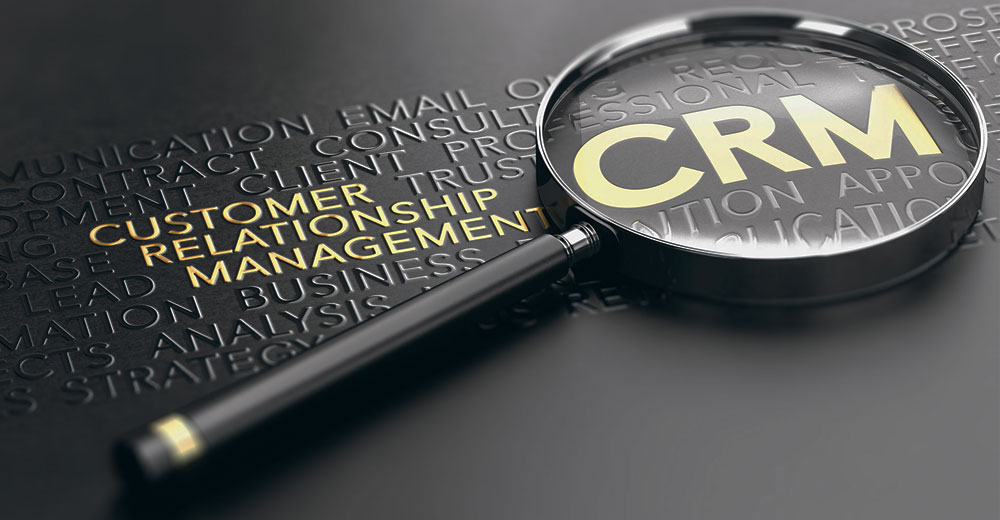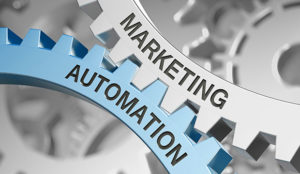In today’s evolving business environment, every operational decision is critical — and that includes best practices for managing the customer journey. The customer relationship management platform is an integral part of the process. In fact, 91 percent of companies with more than 11 employees use a CRM system.
Because of the time it saves, and the structure CRM delivers (and its ever-growing importance in the overall sales tech stack), it can seem daunting for businesses to make a switch, but the reality is there are a few clear signs that it’s time to make a CRM change, even if it means rebuilding integrations and essentially starting from scratch.
1. No One is Using It
It sounds obvious, but how many of the people who are supposed to be using your CRM platform actually use it? If your answer is anything less than 90 percent, it’s not working as it should.
Generally speaking, low CRM utilization is related to one of two underlying issues. First, it’s possible that some users actually do not need access to the system any longer. Users may make a job change internally or leave the company. Roles and responsibilities also change.
The second, and perhaps the more common issue, is that you may have low adoption of the platform. Perhaps you weren’t given adequate onboarding from the platform in the form of training, documentation, and support.
An investment in CRM technology is not a set-it-and-forget-it proposition. Rather, it requires ongoing training, guidance, and service to prevent abandonment by users. If your team doesn’t know how to use and maximize your platform, you may experience fallout in the form of low adoption — and if so, what are you really paying for?
2. Your Budget Is Firm Really
For many vendors, renewal time is an opportunity to increase monthly recurring revenue without delivering any new features or functionality. As a customer, your options are fairly binary: Deal with the hassle of switching providers to save 20 percent or swallow the 20 percent annual increase, which could represent a substantial amount of money in the long term.
You even could end up paying for features you don’t need. Although it might involve short-term pain, finding a platform that fits your needs and is within your budget — and that you know will stay within your budget — might be the best bet.
A little extra research upfront can pay long-term dividends. If you’re not making the most out of your CRM but continue to pay through each price hike, it’s time to switch.
3. Your Data Is All Over the Place
Today’s Software as a Service-driven ecosystem has made data silos more commonplace. Your sales team might use a standard CRM platform to follow up with leads, while the marketing team uses a separate system to send newsletters and special offers. The implementation team might leverage yet another system to keep track of projects and customer onboarding.
Before you know it, your organization uses a dozen or more tools that aren’t meant to integrate and fail to provide a comprehensive view of the customer journey.
Investing in a unified CRM platform for sales, marketing, and delivery is the single fastest and most effective way to cut overhead costs and make the most out of every marketing dollar spent.
It also ensures that employees who engage with customers will have the exact same view of the customer data, whether they work in marketing, sales, delivery, or support. That’s great for your customers. Your CRM should be a single shared source of truth on customer data. If it’s not, then you need to look for another CRM solution.
4. You’re Overwhelmed by the Features
There is no shortage of CRM platforms in the marketplace, and thus there is no shortage of features available to businesses. It can be tough for a midsize business to know which features are the most important now — let alone which features will be the most important in the future.
Business models evolve fluidly as new market entrants constantly challenge the status quo and accelerate the pace of change. The target you’re marching toward now could be wildly different from the one you were trying to hit when you were courting CRM vendors.
This ladders back to adoption rates. If features don’t align with your objectives, your teams won’t use the system, and then what are you paying for?
Midsize companies don’t need feature sets that align with their current needs. Rather, they need solutions that are flexible enough to adapt to meet their needs when things inevitably change. Choose a scalable CRM that can adapt to meet your needs as your company grows or as changes occur.
5. It’s Helping Your Sales Team and No One Else
On the flip side, the pace of advancement in the CRM world means platforms can manage anything from marketing to customer support to implementation. Gone are the days when CRM was just a tool for the sales team.
If you want your data to live in one place, which is the best practice for your customers, you need a platform that can do it all.
Get clear on what your priorities are, and make sure you’re using tech that can help the most teams in your organization — whether marketing, customer service, implementation, project management, or anything else — because the functionality almost certainly exists, even if you’re not currently using it.
6. You’re Using Outdated Technology
Cloud computing has ushered in a complete transformation of business and what businesses are able to accomplish. Software that required a robust IT staff and team of database administrators just a decade or two ago is now instantly accessible for a fraction of the cost.
Despite the cloud’s prevalence, legacy systems still plague a sizable portion of midsize companies. CRM is no exception. When your system is installed onto your server rather than cloud-based, it can create a number of data accessibility issues.
Moving to a cloud-based system can eliminate bottlenecked data, resulting in less administrative overhead, improved transparency, and a healthier pipeline.
Knowledge Is Power
Switching your CRM can be an effective way to boost efficiency, reduce administrative and infrastructure costs, and maximize the impact of your sales stack.
Although it’s not a decision to be made lightly, investing an adequate amount of time to gather helpful resources, talk to your users, and understand your unique situation will help you reevaluate the CRM market with a clear focus.
Armed with this information, you’ll be in an excellent position to consider a switch.
















































